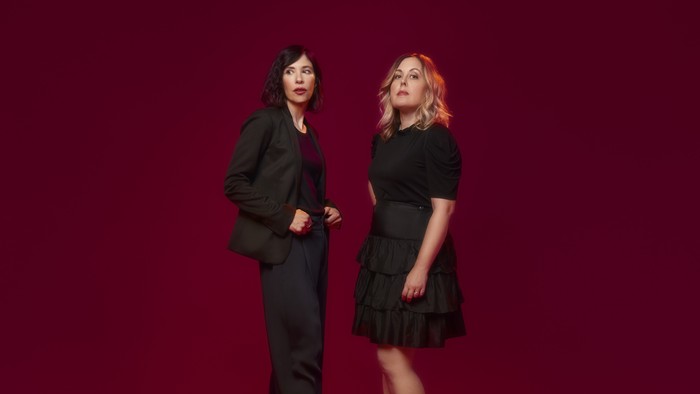Unsure of how to respond to her inquisition, I just stared at the ground, awed that my musical tastes had garnered me social leper status. I was used to being made fun of for other reasons--my thick glasses, my orthopedic shoes, my consistent success at the school spelling bee--but I loved Olivia Newton-John so much I had no idea my devotion would be interpreted as idiocy.
Twenty-four years later, I'm backstage at a Les Savy Fav show, biting some poor guy's head off for claiming to "not really dig Drive Like Jehu." I didn't call him a gay, retarded loser, but I believe the phrases "you're fucking out of your mind" and "I sort of want to kick your ass" crossed my lips. How did I get to this hypocritical space?
Well, like any other social behavior, I acquired it through lessons learned along the way. Shortly after the ONJ incident, John Lennon was shot to death. My mother was positively grief-stricken, sequestering herself in her art studio and crying for what felt like hours. She finally emerged to sit me down and explain why this was such a tragedy. Not only had a Beatle been shot, but the most important Beatle had been shot. She didn't say it explicitly, but it was clear from the tone in her voice that she wouldn't be this devastated if Mark David Chapman had gunned down Paul McCartney instead.
As I entered my teen years and turned into a full-fledged metalhead, I developed my own critical parameters, fine-tuned by the mostly masculine company I was keeping. The first lesson was the now-classic adage, "I like their older stuff better." Certain titans of the metal world had end points where their relevance diminished markedly. No self-respecting rocker listened to any Judas Priest albums after Defenders of the Faith; Iron Maiden topped out with Powerslave (or arguably, Piece of Mind) and everyone saw the writing on the wall when Metallica lost beloved bassist Cliff Burton and dropped ...And Justice For All, a discouraging effort that foreshadowed the Bob Rock-engineered atrocities that would soon be committed. Also, keyboards in metal were definitely gay AND retarded. Esteemed metal scribe Chuck Klosterman once wrote that "keyboards were the Roe vs. Wade of the metal world," which aside from being a hilarious analogy, is frightfully accurate.
Turning 21 in 1991 in Seattle set the stage for becoming an indierock snob. Although I enjoyed my copy of Pearl Jam's Ten and was a pretty committed Soundgarden fan, when I had cute punk boys back to my apartment, I made sure those records were tucked behind more prominently displayed works by Nirvana, the Melvins, and Mudhoney. It wasn't even so much that I was ashamed of my Pearl Jam and Soundgarden records, it was that I didn't want risk being judged as "too mainstream," a fear that clearly reverberated from the social ostricization I encounter on that fourth-grade playground.
This paradox is why I remain a conflicted music snob. Despite all its irritating overtones, music snobbery exists for a reason. Few art forms inspire the sort of passionate opinions that music does. Being a music snob comes in varying degrees, but exhibiting some sort of critical opinion is a validation of music's worth. However, when your snobbery is something you feel compelled to wield against others, then you're crossing a line.
Consider this my open apology to the non-Drive Like Jehu fan. Dude, I'm sorry--it's Erika Konsa's fault.


















